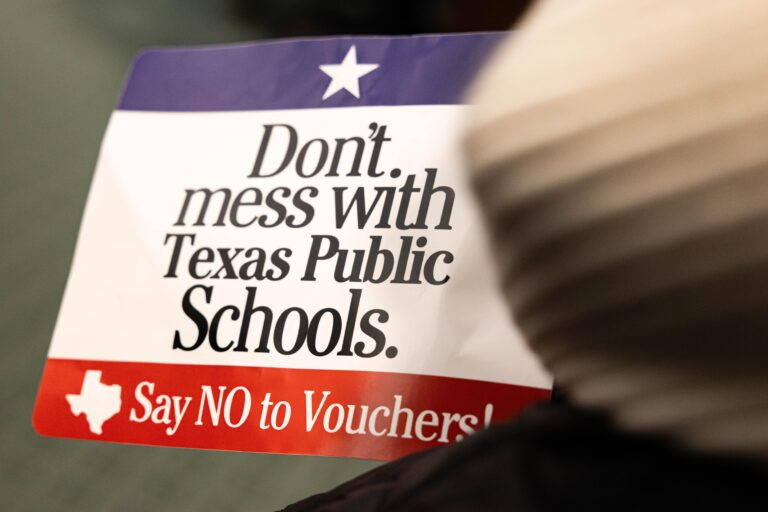Texas Republicans’ recent push to expand school voucher programs has reignited debate over the initiative’s controversial origins. While proponents argue that vouchers offer families greater educational choice and opportunities, critics point to a troubling history tied to segregation and efforts to circumvent public school integration. As the state moves forward with legislation aimed at broadening access to private schooling options, understanding the complex and often unsettling roots of school vouchers is essential to the ongoing discussion about equity and education reform in Texas.
School Vouchers in Texas Under Scrutiny for Controversial Historical Roots
Recent debates surrounding school vouchers in Texas have resurfaced troubling discussions about their inception. Critics argue that the program’s foundational goals were intertwined with efforts to circumvent public school desegregation after the 1954 Brown v. Board of Education ruling. These origins reveal a deliberate strategy to channel public funds away from integrated public schools towards private institutions, many of which historically excluded students of color.
Supporters of the voucher system emphasize parental choice and educational freedom, but historical analysis shows this policy was initially designed to maintain racial segregation under the guise of school choice. The controversy is fueling calls for increased transparency and demands for policies that prioritize inclusive, equitable education. Below is a brief overview of the historical context versus contemporary justifications:
| Aspect | Historical Context | Current Narrative |
|---|---|---|
| Primary Aim | Maintain racial segregation | Expand parental choice |
| Targeted Schools | Private, segregated institutions | Diverse range of private and charter schools |
| Funding Source | Diverted public funds | Redirect public education dollars |
Examining the Political Motivations Behind Republican Support for School Vouchers
The push by Texas Republicans for school voucher programs is not merely about expanding parental choice or improving educational outcomes. Deeply intertwined with political strategy, these initiatives reflect a calculated effort to reshape public education along ideological lines. Historically, the voucher movement in Texas has roots linked to countering integration efforts and maintaining educational segregation, a fact often obscured in modern discourse. This legacy underscores the importance of scrutinizing the policy beyond its surface benefits, revealing motivations grounded in preserving certain power structures and influencing voter bases.
Key political motivations driving Republican support include:
- Consolidating influence among conservative constituencies by appealing to religious and private school advocates.
- Redirecting public funds from traditional public schools, potentially weakening unions and reducing regulatory oversight.
- Framing vouchers as a mechanism for educational freedom that aligns with broader partisan narratives on limited government.
- Using voucher access as a political tool to increase parental engagement and mobilize voters in key districts.
| Political Motivation | Strategic Impact |
|---|---|
| Religious & Private School Support | Strengthens conservative base loyalty |
| Funding Diversion | Weakens public school infrastructure |
| Limited Government Messaging | Resonates with anti-regulation voters |
| Voter Mobilization | Enhances turnout in targeted regions |
Impact of Voucher Programs on Public Education Equity and Access
Voucher programs, championed by Texas Republicans, claim to broaden parental choice and improve educational outcomes. However, critics argue that these initiatives often exacerbate disparities by diverting crucial funding from traditional public schools, which serve the majority of students, particularly those from low-income and minority backgrounds. While proponents highlight the potential for students to access private education, the reality is that many voucher recipients still face significant barriers, such as limited availability of participating private schools and insufficient voucher amounts to cover full tuition costs.
Key concerns surrounding voucher programs include:
- Increased segregation along socioeconomic and racial lines.
- Reduced resources for public schools, impacting quality for remaining students.
- Lack of rigorous accountability and oversight for private institutions accepting vouchers.
| Impact Metric | Public Schools | Voucher Recipients |
|---|---|---|
| Average Funding per Student | $10,500 | $7,200 (voucher amount) |
| Percentage Low-Income Students | 60% | 30% |
| Accountability Measures | State Assessments & Audits | Varies, often minimal |
Policy Recommendations for Transparent and Inclusive Education Reform in Texas
To foster a fair and accountable education system, policymakers must prioritize transparency in the allocation and oversight of public funds. This means implementing rigorous reporting requirements for voucher programs, ensuring public access to how funds are spent, and mandating that private schools receiving vouchers adhere to consistent standards of educational quality and nondiscrimination. Without such safeguards, voucher programs risk undermining public education by diverting resources without measurable benefits or equitable access.
Inclusion must also be at the center of education reform efforts, embracing the diversity of Texas’ student population. Effective policy must:
- Guarantee equal participation opportunities for historically underserved communities.
- Promote multilingual education and culturally responsive curricula.
- Involve educators, families, and community stakeholders in decision-making processes.
| Policy Element | Priority | Expected Impact |
|---|---|---|
| Financial transparency | High | Improved trust, accountability |
| Inclusive policy design | High | Broader access, diversity |
| Stakeholder engagement | Medium | More informed reform |
Concluding Remarks
As the debate over school vouchers continues to intensify in Texas, it is crucial to examine not only the policy implications but also the historical context from which it emerges. Understanding the origins of the voucher movement sheds light on the motivations behind the push by Texas Republicans and the potential consequences for public education. As lawmakers consider the future of school choice in the state, the conversation must remain grounded in a transparent assessment of both the benefits and the contentious legacy embedded in the school voucher debate. Texas Public Radio will continue to provide in-depth coverage as this story unfolds.







